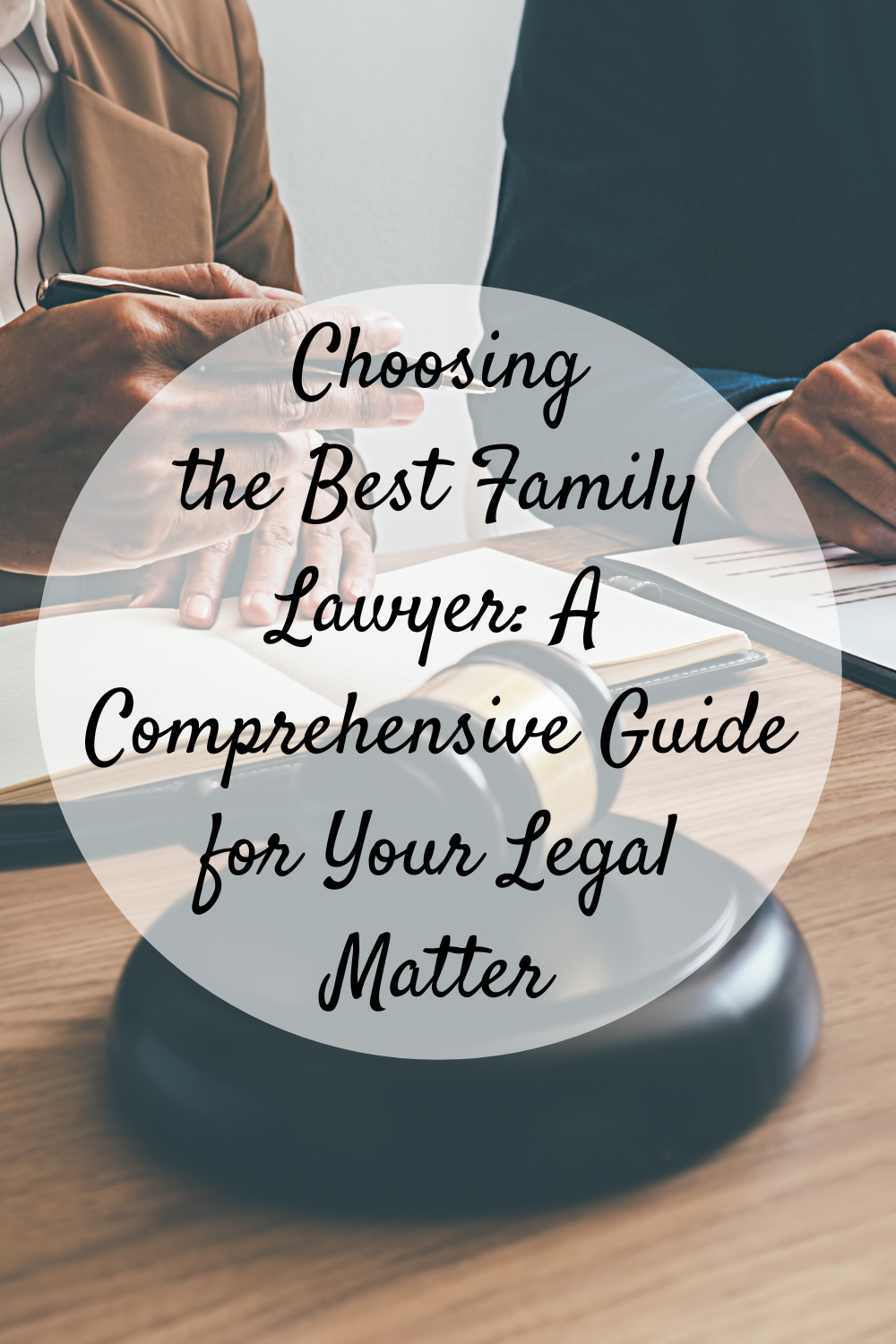In matters of family law, such as divorce, child custody, adoption, or domestic violence, selecting the right family lawyer is crucial for achieving a favorable outcome and navigating the legal process with confidence.
With numerous lawyers practising in this field, finding the best fit for your specific needs can seem daunting, but if you are looking to hire local family lawyers in Melbourne, this guide will help you know what to look for.
However, by following a systematic approach and considering key factors, you can choose a family lawyer who will advocate for your interests and guide you through challenging times. In this comprehensive guide, we’ll explore the essential steps to selecting the best family lawyer for your matter.
Assess Your Needs and Goals
Before you begin your search for a family lawyer, take some time to assess your needs and goals for your legal matter. Consider the following questions:
- What type of family law issue are you facing (e.g., divorce, child custody, adoption)?
- What are your goals and objectives for the legal process?
- Are there any unique circumstances or complexities in your case that require specialized expertise?
- Do you have any preferences regarding the lawyer’s communication style, approach, or availability?
By clarifying your needs and goals upfront, you can narrow down your search and find a family lawyer who can effectively address your specific concerns.
Research Potential Lawyers
Once you’ve identified your needs, the next step is to research potential family lawyers. Here are some strategies to help you find qualified candidates:
- Seek Recommendations: Ask for referrals from friends, family members, or colleagues who have experience with family law matters. Personal recommendations can provide valuable insights into a lawyer’s reputation, professionalism, and effectiveness.
- Consult Online Directories: Explore online directories of family lawyers in your area, such as legal association websites or directories like Avvo or FindLaw. These platforms often provide detailed profiles of lawyers, including their areas of practice, credentials, and client reviews.
- Review Websites and Testimonials: Visit the websites of prospective family lawyers to learn more about their practice and read client testimonials or reviews. Pay attention to any case results or success stories that demonstrate the lawyer’s track record of achieving favorable outcomes for clients.
- Check Credentials and Specializations: Verify that the lawyers you’re considering are licensed to practice in your jurisdiction and have experience handling cases similar to yours. Look for certifications or specializations in family law that indicate a lawyer’s expertise in specific areas, such as mediation, collaborative law, or litigation.
Evaluate Experience and Expertise
When evaluating potential family lawyers, consider their experience and expertise in handling cases similar to yours. Here are some key factors to consider:
- Years of Experience: While longevity isn’t the sole indicator of a lawyer’s competence, it can provide insight into their level of familiarity with family law processes and procedures. Look for lawyers with a solid track record of representing clients in family law matters.
- Case Success Rate: Inquire about the lawyer’s success rate in handling cases similar to yours. While past results are not indicative of future outcomes, a lawyer with a history of achieving positive results for clients may be better equipped to handle your case effectively.
- Specialized Knowledge: Family law encompasses a wide range of issues, from divorce and child custody to adoption and domestic violence. Choose a lawyer who has expertise in the specific area of family law relevant to your case. For example, if you’re facing a high-conflict divorce, you may benefit from a lawyer experienced in negotiation and mediation techniques. When it comes to adoption, Orange County adoption lawyers are well-versed in the complexities of the process, ensuring that your path to parenthood is handled with care and legal precision.
- Communication Style: Effective communication is essential in any legal relationship. Evaluate how responsive and accessible the lawyer is during your initial consultations. A lawyer who takes the time to listen to your concerns and explain complex legal concepts in a clear and understandable manner can help alleviate stress and uncertainty throughout the legal process.
Consider Personal Compatibility
In addition to assessing a lawyer’s qualifications and experience, it’s important to consider your personal compatibility and comfort level with the lawyer. Family law matters often involve sensitive and personal issues, so having a strong rapport with your lawyer is essential. During your initial consultations, pay attention to the following factors:
- Empathy and Compassion: Choose a lawyer who demonstrates empathy and compassion for your situation. A lawyer who understands the emotional challenges you’re facing and shows genuine concern for your well-being can provide valuable support and reassurance during difficult times.
- Trust and Transparency: Trust is the foundation of any successful attorney-client relationship. Look for a lawyer who is transparent and upfront about the strengths and weaknesses of your case, as well as the potential risks and outcomes. Trust your instincts and choose a lawyer whom you feel comfortable confiding in and relying on for guidance.
- Accessibility and Availability: Consider the lawyer’s availability and accessibility when evaluating your options. Family law matters often require timely action and communication, so choose a lawyer who is responsive to your inquiries and available to address your concerns promptly.
- Fee Structure and Billing Practices: Discuss the lawyer’s fee structure and billing practices during your initial consultations. Make sure you understand how fees will be calculated, what expenses are included, and any payment arrangements or options available. A transparent and fair fee structure can help you avoid misunderstandings and financial surprises down the road.
Choosing the best family lawyer for your needs is a critical decision that can significantly impact the outcome of your case. By considering factors such as experience, expertise, personal compatibility, and reputation, you can make an informed decision.

